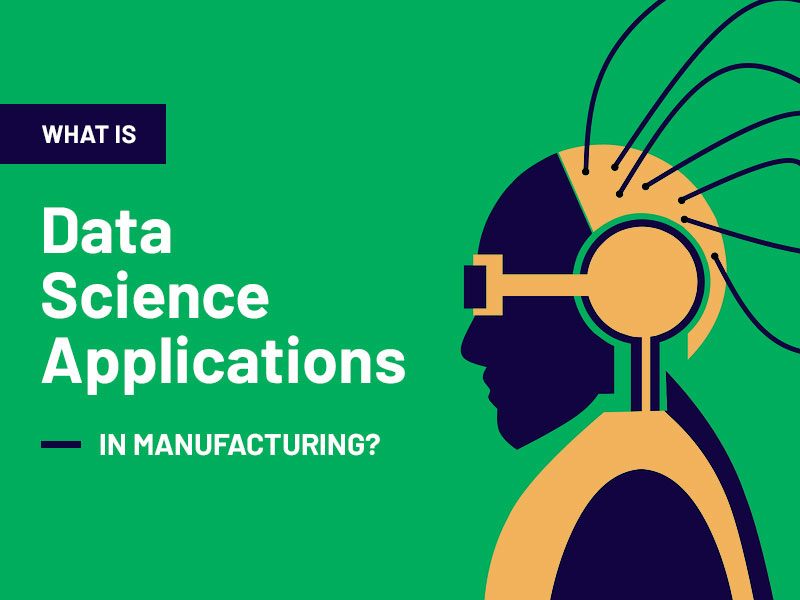Data science is a relatively new field that has been growing exponentially over the last few years. There are many applications for data science in manufacturing, including the emerging concept of Industry 5.0, which integrates advanced technologies like IoT and AI with human-centered design principles.
Data Science can help manufacturers reduce production costs by using machine learning algorithms to predict when parts will fail or need to be replaced. Data science applications in manufacturing are professionals who use data and analytical methods to study, model, and build predictive models. They typically work in the fields of business, science, engineering, medicine, public policy and education.
Data Science can also help manufacturers improve quality control by using machine learning algorithms to predict when a product will fail or need to be recalled. It is the field of study that has been gaining attention in recent years. It involves the collection, storage, analysis and visualization of data to find patterns and relationships in it.
Some applications for manufacturing include:
- Predictive maintenance
- Predictive design
- Optimization of production processes
- Process automation

What are the Key Takeaways of Implementing Data Science into Manufacturing?
The implementation of data science into manufacturing can be considered as a new era. In order to keep up with the competition, manufacturers have to adopt AI and machine learning technologies in order to create products that are more efficient and effective. Manufacturing is one of the most competitive industries in the world. In order to stay competitive, manufacturers have to take advantage of digital technologies and implement AI into their processes. In this article, we will discuss how data science applications can be implemented into manufacturing and what are some key takeaways from it.
Data science is a process by which we can extract insights from data through various techniques such as machine learning, artificial intelligence, etc. It is also an umbrella term for all the methods that help us extract insights from data in an automated way without human intervention.
One of the most well-known applications of data science is its use in machine learning algorithms which are used for predictive analytics or pattern recognition on large amounts of raw datasets for decision support purposes such a common misconception about data science is that it is only for large enterprises and large-scale businesses. In this article, we will discuss how small-scale businesses can benefit from implementing data science into their manufacturing operations.
The key takeaways of this article are:
- Data science can help companies improve the quality of their products by using machine learning algorithms to predict the quality of the product before it’s made.
- Data science can also help companies reduce costs by reducing scrap and waste in manufacturing processes.
- Companies should always be wary of data that they are collecting as they could be violating privacy laws or inadvertently violating a customer’s personal information.
Also read: How Can Retail and E-commerce Benefit from Data Science?
The Future of Data Science for Manufacturing
Data science is a new field that has been gaining momentum in the past few years. It is an interdisciplinary field that uses data to solve problems and make decisions. Data science is being used in many industries, including manufacturing. Data science can be applied to improve manufacturing processes by using predictive analytics and machine learning tools to create new product designs and improve production efficiency. These tools are also helpful for predicting demand for products before they are launched, which helps manufacturers avoid overproduction.
The future of data science for manufacturing will be driven by insights from big data analysis, which will help companies predict what the market demands, as well as how to make better decisions about their products and production processes.
The Future of Data Science for Productivity in Manufacture
Data science is a new field that has been growing at an exponential rate. It is the use of data to make predictions and gain insights into human behavior. With the help of data science, businesses can optimize their processes and increase productivity. The impact of AI on the future of data science for productivity in manufacturing is significant. In this particular case, AI will help companies to collect data by automating tasks that were previously done manually through various devices such as sensors, cameras, and other devices that are connected to the internet.
Data science is a field that has been in the limelight for the past few years. Data science is a combination of two words, data and science. Data Science is a big data analytics company. Data is information and statistics collected from various sources. Science is a systematic approach to acquiring knowledge about the world through observation, experimentation, modeling, and validation.
Data science can be used in various ways to improve productivity in manufacturing companies. Some examples are:
- Data science can help companies improve the quality of their products by using machine learning algorithms to predict the quality of the product before it’s made.
- Data science can also help companies reduce costs by reducing scrap and waste in manufacturing processes.
- Companies should always be wary of data that they are collecting as they could be violating privacy laws or inadvertently violating a customer’s personal information.







